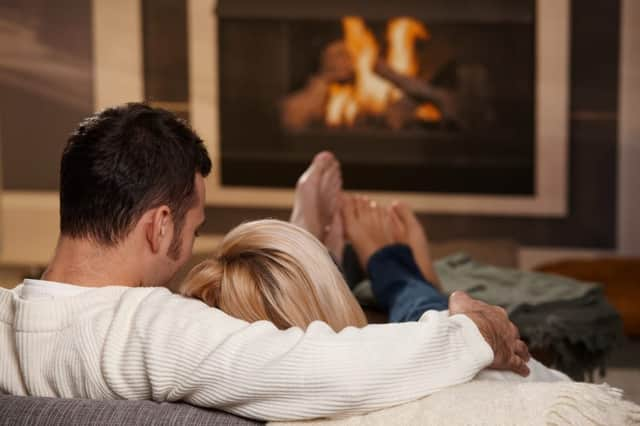Couples have been told to stop seeing each other or move in together to stop coronavirus spreading


Couples have been told they should stop seeing each other or move in together in the effort to stop the spread of coronavirus.
Due to restrictions on movement, people have been told to stop seeing anyone who does not live in their household.
Advice for couples
Advertisement
Hide AdAdvertisement
Hide AdAny couple who are not currently cohabiting should stop seeing one another, or move in together, according to the official government advice.
Deputy chief medical officer Dr Jenny Harries recommended non-cohabiting partners move in with one another at the Downing Street press conference on Tuesday (24 Mar) evening.
She said: "If you are two individuals, two halves of the couple, living in separate households then ideally they should stay in those households.
"The alternative might be that, for quite a significant period going forward, they should just test the strength of their relationship and decide whether they should permanently be resident in another household.
Advertisement
Hide AdAdvertisement
Hide Ad“What we do not want is people switching in and out of households.
"It defeats the purpose of reductions in social interactions and will allow the transmission of disease."
Coronavirus: the facts
What is coronavirus?
COVID-19 is a respiratory illness that can affect lungs and airways. It is caused by a virus called coronavirus.
What caused coronavirus?
The outbreak started in Wuhan in China in December 2019 and it is thought that the virus, like others of its kind, has come from animals.
How is it spread?
Advertisement
Hide AdAdvertisement
Hide AdAs this is such a new illness, experts still aren’t sure how it is spread. But, similar viruses are spread in cough droplets. Therefore, covering your nose and mouth when sneezing and coughing, and disposing of used tissues straight away is advised. Viruses like coronavirus cannot live outside the body for very long.
What are the symptoms?
The NHS states that the symptoms are: a dry cough, high temperature and shortness of breath - but these symptoms do not necessarily mean you have the illness. Look out for flu-like symptoms, such as aches and pains, nasal congestion, runny nose and a sore throat. It’s important to remember that some people may become infected but won’t develop any symptoms or feel unwell.
What precautions can be taken?
Washing your hands with soap and water thoroughly. The NHS also advises to cover your mouth and nose with a tissue or your sleeve (not your hands) when you cough or sneeze; put used tissues in the bin immediately and try to avoid close contact with people who are unwell. Also avoiding touching eyes, nose and mouth unless your hands are clean.
Government advice
As of Monday 23 March the prime minister has put the UK into lockdown and instructed all citizens to stay at home. People can only leave their homes to exercise once a day, go shopping for food and medication, travel for medical needs or to care for a vulnerable person, and travel to work only if essential. Police will be able to enforce these restrictions.
Advertisement
Hide AdAdvertisement
Hide AdAll non-essential shops will close with immediate effect, as will playgrounds, places of worship and libraries. Large events or gatherings of more than two people cannot go ahead, including weddings and celebrations. Funerals can only be attended by immediate family. Children of separated parents can go between both parents' homes.
Anyone with a cough or cold symptoms needs to self-isolate with their entire household for 14 days.
The government has now instructed bars, restaurants, theatres and non-essential businesses to close and will review on a ‘month to month’ basis. Schools closed from Friday 20 March for the foreseeable future, and exams have been cancelled.
The over 70s or anyone who is vulnerable or living with an underlying illness are being asked to be extra careful and stay at home to self-isolate. People with serious underlying health conditions will be contacted and strongly advised to undertake "shielding" for 12 weeks.
Advertisement
Hide AdAdvertisement
Hide AdFor more information on government advice, please check their website. https://www.gov.uk/government/topical-events/coronavirus-covid-19-uk-government-response
Should I avoid public places?
You should now avoid public places and any non-essential travel. Travel abroad is also being advised against for the next 30 days at least, and many European countries have closed their borders.
What should I do if I feel unwell?
Don’t go to your GP but instead look online at the coronavirus service that can tell you if you need medical help and what to do next. https://111.nhs.uk/covid-19Only call 111 if you cannot get help online.
When to call NHS 111
Only call NHS 111 if you can’t get help online and feel very unwell. This should be used if you feel extremely ill with coronavirus symptoms. If you have been in a country with a high risk of coronavirus in the last 14 days or if you have been in close contact with someone with the virus please use the online service.
Sources: World Health Organisation and NHS